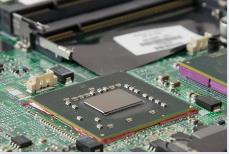The supply of copper foil, resin, and fiberglass cloth in the upstream of PCB continues to exceed demand during this period, causing prices to soar. Among them, copper foil is the hardest hit area. The price of copper in London has remained at a level of around US$9,000 per metric ton in the near future. Recently, foil manufacturers have once again announced the need to further increase prices. It can be expected that this wave of material gains has no possibility of easing in the short term.
After PCB factories have carried on their own waves of gains, their tolerance has been approaching their limits. It is understood that CCL materials have increased by about 20% to 30% on average in the past six months. Therefore, most PCB manufacturers, especially traditional hard-board manufacturers, have been unable to withstand the pressure and started price negotiations with customers, hoping that customers can understand the pressure of PCB factories and help absorb some costs. And the end customers, ODM, and OEM factories that are the counterparts of PCB factories, seeing that the supply of various materials is really in short supply, and the pressure of rushing to ship is far greater than the cost pressure, the recent attitude has indeed softened. The outside world generally believes that although the price increase rate is still uncertain, this wave of cost transfer negotiations by PCB factories is expected to achieve certain results. Even if the increase is only 5-10%, it is not without small compensation.

In fact, in the past six months, PCB factories are indeed in an awkward state of sandwich biscuits. Faced with the price increase requirements of upstream CCL factories, if they do not accept it, they may not get enough materials to cope with the endless supply. For orders, the CCL side has become a complete buyer’s market. In the face of downstream assemblers and end customers, PCB factories have relatively limited bargaining power. In particular, some customers have always been very tough on prices. PCB factories can only think about it. Ways to solve the problem of erosion of profit space. The PCB factory pointed out that although PCB does not account for a high proportion of the cost structure of various final products, it is only when related products are in short supply like carrier boards, or customers have far greater requirements for product yield and reliability. If the cost is higher than the cost, customers will reduce their emphasis on cost. However, the current terminal market conditions are hot, and the supply of various components is in short supply. Perhaps at this stage, customers are more willing to accept order price increases. Judging from the current situation where the upstream raw materials can be said to be soaring, it is not only the PCB industry that is affected, but all electronic component supply chains are beginning to feel the pressure. The price increase has evolved from a single event to a systemic event. In order to maintain a long-term cooperative relationship and stable product quality, customers usually choose to accept cost transfer to avoid other unknown risks.
However, the relevant supply chain industry also mentioned that the acceptance and actual results of cost pass-through will have very diversified results based on the relationship between the PCB factory and the customer's cooperation, various different material numbers, and different applications. There is no standard negotiation. Tacit understanding or process, everyone is able to convince customers, if there are customers who really maintain a strong attitude towards costs, or if the industry encounters difficulties in cost transfer, it should not be too surprising.